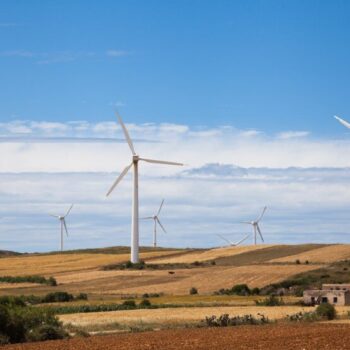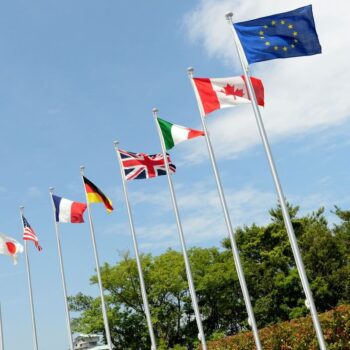Marvel comics might not be considered an authoritative guide to the politics of the G7. But the appropriated meme that ‘with great power, comes great responsibility’ is bang on.. As the countries with the biggest role in the global financial architecture, the G7 are well placed to take a lead on initiating reform for how international public finance is deployed to deliver more compatible outcomes with climate change.
But this is only part of the picture, G7 international public flows are not insignificant, but pale into comparison to the investments coming on stream over the next decade in emerging economies. As the New Climate Economy report estimates, US$89 trillion of infrastructure investment will be deployed out to 2030. As many developing countries stand ready to tap on this huge infrastructure gap, namely through institutions such as the new Asian Infrastructure Investment Bank (AIIB), we are all wondering: will all those investments be climate sound? Or completely undermine all efforts to keep our world under 2°C and withstand the impacts that come their way?
Climate impacts and actions will expose current G7 overseas investments to big risks. As the geopolitics shift and new institutions like the AIIB become established, G7 economies have a vested interest in holding all international public flows, theirs and other major economies, to account. But these countries must get their own house in order first. The G7 summit in June and the Financing for Development meeting in July pose great opportunities for these economies to start embarking on the journey of shifting the trillions of investments away from high carbon infrastructure towards efficient, modern climate compatible options. For starters international public finance from the pockets of the G7 should ‘do no harm’, setting a precedent for emerging donors. But the G7 has to blink first.
This commitment from the G7 will not only protect its own investments, and over time, bring others into alignment with their objectives, it can also win friends and influence people! Signalling its willingness to take the first step will reaffirm to its friends in developing countries that the G7 understands their calls for more action to support the transition towards decarbonisation. Goodwill offers early on, help pave the way for a less melodramatic outcome in the end. Without such efforts, the G7 risks further enraging their friends and allies in the developing world. If they decide to play hardball with finance, it will likely break Paris. This is the G7 in 2015, before Paris, no longer can these countries just announce a raft of initiatives and hope for the best. If Paris is to succeed in being the turning point on the road to decarbonisation then it will take something more than just another Public-Private-Partnership. It will need bold action.
The G7 should be in no doubt of their responsibility and power to act on shifting the trillions. Whilst countries like Japan will try to hide behind energy intensive practices of Chinese foreign direct investment, they need to suck it up. As the architects of the global norms on finance, the G7 cannot continue to stay in the shadows of others. These countries have been sitting at the helm but choosing to just tinker round the edges, pointing the finger at others. Now they need to prove their worth. Hiding behind the Chinese development lending has to stop. It is within the power of the G7 to do so, but it’s going to take guts.


